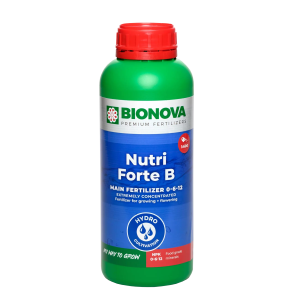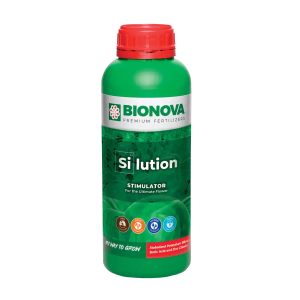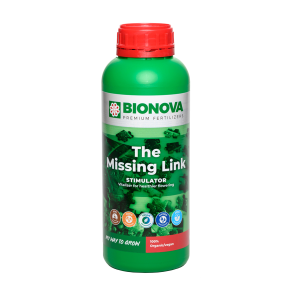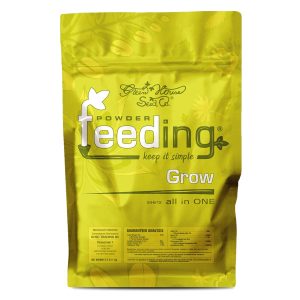Product Description
Bionova Zym (aka BN-Zym) increases bacteria activity, helping convert nutrients and minerals in your substrate into material that can be directly absorbed by the roots. BN-Zym catalyzes waste matter and delivers it back to the crop in the form of absorbable nutrients. Moreover, the medium stays clean and free of excess components. This is important for every cultivation; especially for those that re-use soil and coco substrates....More Details
Product Specification
| Name | Bionova BN-Zym Enzymes & Stimulator (1L) |
|---|---|
| SKU | 8718531672734 |
| Weight | 2.7 lbs |
|---|---|
| Dimensions | 3.25 × 3.25 × 10 in |
| Stimulators Size | 250 ml, 1 liter, 5 liter, 20 liter |
You May Also Like
Similar Products
More Details
WHY USE BN-ZYM?
- Bionova Zym is a natural bio-catalyst
- Stimulates water-retention in all media and decreases the soil-tension of water
- Bionova Zym brings more oxygen into your substrate
- Zym is highly concentrated making it incredibly efficient
Suitable for cultivation methods:
- Soil
- Coco
- Hydro
- Aero
Recommended Dosage:
2 ml per gallon.
Zym can be used for the entirety of grow and bloom. May be used with all Bionova products. This product should not be used as a foliar spray.
TIPS FROM BIONOVA GROWERS
- To make the most of your enzyme solution, you’ll want to apply it directly to the soil. Remember, the beneficial enzymes we’re interested in reside in the soil around your plant’s root system.
WHAT’S INSIDE AND WHY?
- Potassium
- Potassium regulates the opening and closing of stomata helping to regulate CO2 uptake thereby enhancing photosynthesis.
- It triggers activation of important biochemical enzymes for the generation of Adenosine Triphosphate (ATP). ATP provides energy for other chemical and physiological processes such as excretion of waste materials in plants.
- This mineral plays a role in osmoregulation of water and other salts in plant tissues and cells.
- Potassium also facilitates protein and starch synthesis in plants.
- It activates enzymes responsible for specific functions.
- Xylanase
- Plays a major role for microorganisms thriving on plant sources for the degradation of plant matter into usable nutrients.
- Degrades the linear polysaccharide xylan into xylose, thus breaking down hemicellulose – one of the major components of plant cell walls.
- Beta-Glucanase
- Plays key roles in cell division, trafficking of materials through plasmodesmata, in withstanding abiotic stresses and are involved in flower formation through to seed maturation.
- Commonly known as pathogenesis-related (PR) proteins, play an important role not only in plant defense against fungal pathogens but also in plant physiological and developmental processes.
- Cellulase
- Cellulase enzymes are used to break down the cellulose of plant cell walls into simple sugars that can
be transformed (fermented) by microbes to fuels, primarily ethanol, as well as to chemicals, plastics, fibers, detergents, pharmaceuticals, and many other products. - 2. Plays a major role in the global carbon cycle by degrading insoluble cellulose to soluble sugars.
- 3. Cellulases are used to degrade the cell wall and obtain protoplasts. They are synthesized by certain microorganisms (bacteria, fungi, protozoa).
- Cellulase enzymes are used to break down the cellulose of plant cell walls into simple sugars that can




